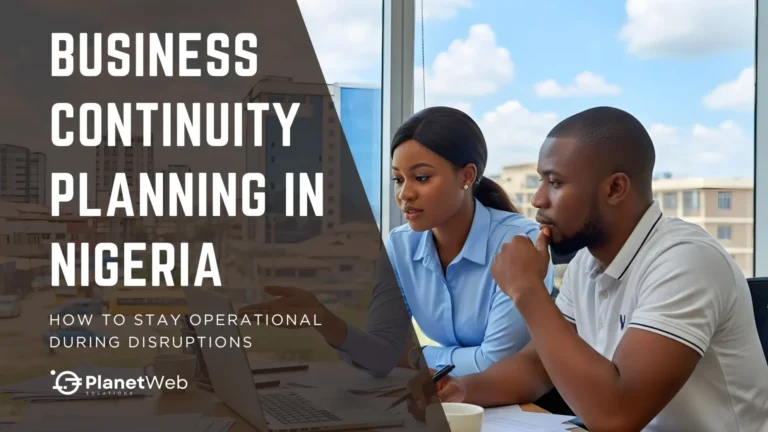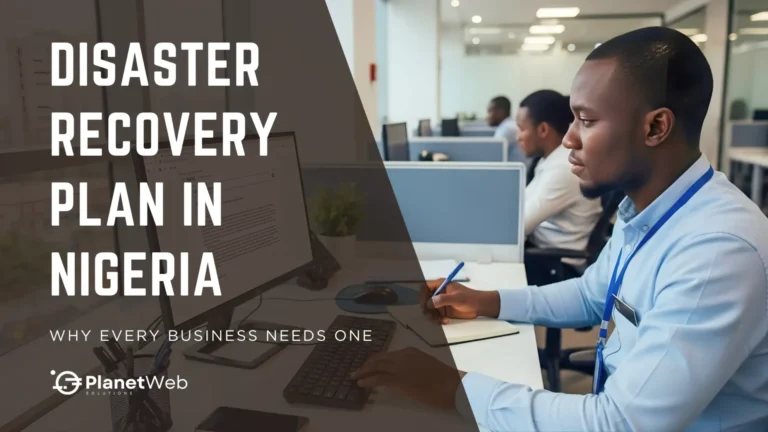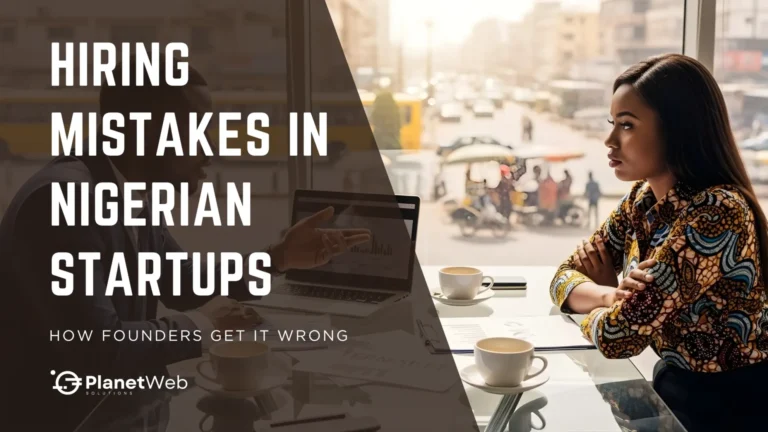Why Co-Founder Conflicts in Nigerian Startups Destroy Even the Best Ideas
Every Nigerian founder eventually faces a difficult conversation with a co-founder. It’s rarely sudden. The business might be growing, customers might be happy, and investors might be supportive, but the relationship at the centre is breaking down. Decisions drag. Trust fades. The team feels the tension.
This is what happened at Pivo.
By late 2022, Pivo had raised $2 million, achieved a 98% loan repayment rate, and grown transaction volume by 400%. The product worked. The market responded. Yet within a year, the company shut down. Not from market failure or funding gaps, but from something harder to fix: the founders couldn’t work together anymore.
In Part 1 of this series, we explored how founder psychology breaks down under Nigerian operating conditions. In Part 2, we examined why your best people keep leaving. But before you lose your team or burn out individually, there’s a deeper fracture that kills startups at the root: when the founding team breaks.
Research from Harvard Business School shows that co-founder disputes are responsible for up to 65% of startup failures globally. In Nigeria, where informal agreements replace legal structures and relationships trump documentation, that number is likely higher. We just don’t talk about it.
The Pivo Breakdown: When a Working Startup Dies from the Inside
Nkiru Amadi-Emina and Ijeoma Akwiwu founded Pivo in July 2021 with a clear mission: to provide financial services to small logistics and supply chain businesses in Nigeria. Female-led, YC-backed, solving a real problem with strong early traction.
They bootstrapped for six months, then raised a $100,000 pre-seed in September 2021. By November 2022, they’d closed a $2 million seed round led by Y Combinator, Ventures Platform, and Mercy Corps Ventures, with over 15 other investors. The metrics looked solid. Pivo Capital had disbursed more than $3 million in loans with a 98% repayment rate. Pivo Business processed over $4 million in transactions. This wasn’t a struggling startup searching for product-market fit. This was a company that worked.
Then something broke.
According to reporting by Bendada and TechCabal, the conflict began shortly after the November 2022 seed announcement. The details that emerged in those reports show how founder relationships can fracture.
Amadi-Emina was running another company while serving as Pivo’s CEO. According to the reporting, she appointed her brother, who worked with her at that other company, as Pivo’s company secretary. Akwiwu, the COO and co-founder, wasn’t consulted.
When she found out, communication between the two founders collapsed.
This wasn’t a single explosive fight. It was the slow poison of unresolved tension. Decisions that used to take hours now took weeks. Team members started choosing sides.
Partners and customers began to sense that something was wrong. The company’s market reputation began to suffer. Business relationships that had taken months to build deteriorated as internal dysfunction became external knowledge.
By May 2023, investors had seen enough. They stepped in with a formal memo outlining new terms for the founders’ employment contracts. The intervention attempted to “correct some of the issues faced,” according to documents seen by the press. Part of the solution: Akwiwu would resign as COO and receive compensation. According to reporting, investors were explicit about the stakes: “Without these measures, we see neither a compelling future for Pivo nor a pathway to continue supporting the company or any future ventures initiated by either of you.”
The memo also included a warning that reads like a parenting intervention: “The investors expect co-founders to treat each other respectfully and refrain from disparaging or publicly maligning one another, the company, or the investors.”
When investors have to mandate that founders stop talking badly about each other, you’re past the point where structure alone can save the relationship.
Six months later, in December 2023, Pivo shut down. A town hall meeting with investors confirmed what everyone already knew: the company couldn’t continue. The founders declined to comment publicly. No clear communication plan for users. Just silence and a shutdown.
The pattern is familiar across Nigerian startup failures, but Pivo’s case is especially instructive because the business fundamentals were sound. The product didn’t fail. The market didn’t disappear. The funding was there. The metrics were strong. The founders failed each other, and the company died as a result.
What Pivo Reveals About Founder Conflicts
Several patterns emerge from Pivo’s collapse that repeat across Nigerian startups:
Side ventures create divided focus. When one founder is building two companies simultaneously, the other sees late replies, missed meetings, and split priorities. Resentment builds quietly.
Appointing a family member to a governance role without co-founder consultation signals that personal relationships trump the partnership agreement. Communication breakdown follows because the founders have stopped trusting each other.
Cultural resistance to confrontation makes it worse. Nigerian business culture values harmony and saving face. Direct confrontation feels aggressive. So founders avoid the hard conversation, hoping time will fix things. It doesn’t. Problems that could have been resolved with one difficult discussion instead become irreconcilable differences.
By the time Pivo’s investors stepped in with their May 2023 intervention, the damage was already done. Reputation was compromised. Team morale had fractured. Business momentum had stalled. The lesson: By the time investors notice, it’s usually too late to save the relationship.
Other Examples: 54gene and Dash
Pivo is the clearest example of a co-founder breakdown, but it’s not the only case showing how leadership conflict destroys otherwise promising companies.
54gene raised $45 million to build Africa’s largest genomics biobank and shut down in 2023 after internal governance collapsed. The co-founder dynamic faded early, replaced by a founder-versus-investor power struggle.
Dr. Abasi Ene-Obong was forced out as CEO in October 2022. The company cycled through three CEOs within a year. Lawsuits followed, including one from an interim CEO alleging discrimination.
By 2025, the founder was in court trying to block investors from selling the company’s assets, including genomic data from 100,000 Nigerians. When governance is weak and roles aren’t clear, investors eventually take control. Usually badly.
Dash, the Ghanaian fintech that raised over $50 million, shut down in 2023 after internal audits revealed that founder Prince Boakye Boampong had allegedly inflated user numbers and transaction volumes. Reports suggested that at least $25 million was unaccounted for in company accounts. The board suspended him pending investigation. The company wound down shortly after.
Trust is the backbone of any founding team. When it breaks, the organization breaks with it.
These are not outliers. Various reports suggest that Nigerian startup shutdowns in 2023 ran into tens of millions of dollars in lost investor capital. Many of those failures trace back to founder and leadership conflicts that festered until they became fatal.
Why Co-Founder Conflicts Hit Harder in Nigeria
The root causes of founder breakdowns exist everywhere, but Nigerian operating conditions amplify them.
Most Nigerian founding teams start informally. Two friends, a shared vision, maybe a Google Doc with ideas. Equity splits happen over drinks. Decision rights? “We both decide everything together.” This works until the first real disagreement.
Equal equity splits feel fair, but they create gridlock. When disagreements arise, there’s no tiebreaker. Just two founders with equal power and opposing views. Every major decision becomes a negotiation. VCs prefer uneven splits because equal equity signals that founders avoided the hard conversation about who leads when alignment fails.
The Nigerian operating environment intensifies everything. Power outages, naira volatility, regulatory uncertainty, and funding gaps. The stress of building in Nigeria makes small disagreements feel existential. When you’re both exhausted from fighting the market, you have less patience for fighting each other.
Equity Splits: The Decisions That Shape Power
A large portion of co-founder disputes begin with poor equity decisions made in the early days. How you split equity determines how power flows through your company. Get it wrong at the beginning, and you’re building on a fault line.
Equal splits lead to power struggles. When both founders own 50%, neither can make final calls. This works during the honeymoon phase. It fails the first time you fundamentally disagree on hiring, fundraising terms, or whether to pivot. Deadlock. The company stalls while you argue.
Contribution should determine equity, not friendship. One founder is full-time, the other works weekends. One put in ₦2 million of savings. The other brought relationships that landed the first customers. You can’t avoid the question by defaulting to 50/50. Resentment will build.
The standard vesting structure is four years with a one-year cliff. This protects against the co-founder who leaves after six months but would otherwise keep 40% of the company. Many Nigerian startups skip vesting entirely. That single choice often creates dead equity and long-term resentment among founders.
Decision Rights: How to Prevent a Pivo-Level Collapse
Most Nigerian startups don’t establish clear decision frameworks. They operate on the principle of “we’ll both decide everything together” until that stops working.
You need three levels of decision authority: CEO authority for day-to-day operations in defined domains. Joint founder decisions for major strategic moves like fundraising terms, pivots, senior hires, or taking on debt. Board-controlled decisions on existential choices, such as selling the company or removing a founder.
If you don’t define this explicitly, every decision becomes a political negotiation. Hiring takes weeks. Spending approvals require multiple conversations. A customer wants an answer today, but you need to check with your co-founder, who’s traveling. These operational delays compound the structural challenges Nigerian startups already face.
Pivo might have survived if decision rights had been clear from the start. If Amadi-Emina and Akwiwu had documented these boundaries early, the brother’s appointment either wouldn’t have happened or would have been addressed through the existing process rather than blowing up the relationship.
Communication Frameworks That Prevent Collapse
Structure prevents problems. Weekly founder sync for at least 30 minutes. What’s working, what’s stuck, where you disagree. Monthly “state of us” conversation about the relationship itself, not operations. Document major decisions in writing. And no side conversations about each other with the team, investors, or advisors. Talk to your co-founder first.
When to Bring In Outside Help
Bring in a mediator before it’s a crisis. If you’ve had the same argument three times with no resolution, you need help now. A trusted mentor who’s navigated founder conflict. An investor with experience. A startup-focused coach.
Pivo’s investors tried to mediate in May 2023, eight months after the conflict started. By then, reputation was damaged, the team was fractured, and momentum was lost. The lesson is simple: don’t wait until a mediator is the last resort. Bring one in while there’s still something to repair.
The Startup Can Survive Market Failure, But Not Founder Failure
Pivo was a working business. Strong metrics. Investor backing. A clear market opportunity. And it died anyway because two founders couldn’t align.
This is the pattern we’ve traced across this series. In Part 1 – Founder Psychology in Nigeria: Why Startup Teams Break Before the Business Fails, we examined how founder psychology breaks under pressure. In Part 2 – Startup Talent Retention in Nigeria: Why Founders Keep Losing Their Best People, we looked at how talent drain accelerates when your best people leave. Now in Part 3, we’ve seen what happens when the founding relationship fractures: the company usually doesn’t survive.
You can pivot away from a bad market. You can survive funding gaps. You can replace key employees. But when the founders can’t work together, there’s no pivot that saves you.
Startups don’t collapse when founders disagree. They collapse when founders can’t resolve it.
What You Can Do This Week
If you don’t have a shareholders’ agreement, schedule a meeting with a corporate lawyer this month. Budget ₦200,000 to ₦500,000 for proper legal work. Firms like Perchstone & Graeys, Banwo & Ighodalo, Detail Commercial Solicitors, and Advocaat Law Practice specialize in startup agreements in Nigeria.
If you haven’t defined decision rights, document them now. Write down who decides what. Day-to-day operations, major hiring, spending thresholds, fundraising, and partnerships.
If you’re about to choose a co-founder, spend more than one day thinking about it. Forty percent of founders spend less than a day on equity splits. The conversation you avoid now will become the conflict that breaks you later.
If you’re already in conflict, stop avoiding the conversation. Schedule dedicated time for at least 2 hours at a neutral location. Name what’s broken explicitly. Bring in a mediator if you need one. A clean separation is better than slow-motion destruction.
Your co-founder relationship is the foundation of your company. The companies that survive aren’t the ones without conflict. They’re the ones with structure to handle conflict when it emerges.
Coming next in this series: Part 4 will examine hiring mistakes, why Nigerian startups hire the wrong profiles, how culture debt accumulates, and why founders fire too slowly even when they know someone isn’t working out.
Frequently Asked Questions
Found this helpful?
- Share it with a founder who’s navigating co-founder dynamics.
- Subscribe to our newsletter for Part 4 on hiring mistakes and building teams that last.
- Comment below: Have you experienced co-founder conflict? What helped you navigate it?
For more on building resilient teams in Nigeria’s startup environment, explore our analysis of startup talent retention challenges and founder psychology under pressure.






